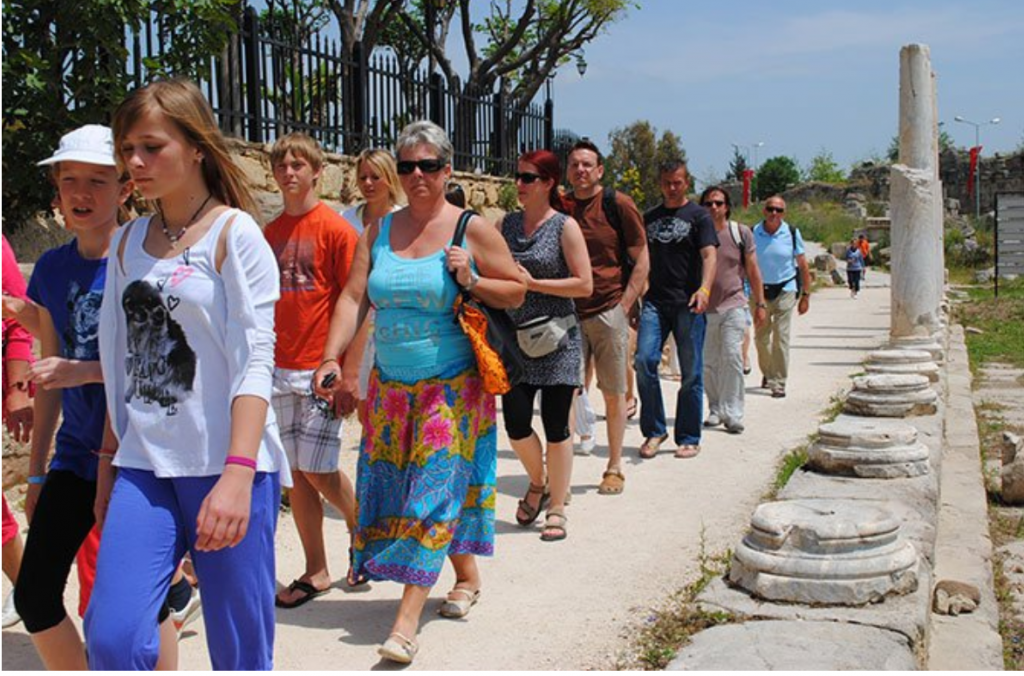A mix of soaring inflation and a currency that’s lost nearly half its value has created a cost of living crisis in Turkey. A bountiful tourism season can help, explains Victoria Craig , but bizarre economic policies could reduce its impact on the economy. Political commentaries believe the Central Bank is trying to support the exchange rate, until tourism revenues begin to flow in June in earnest. However, pressure on the exchange rate is increasing by the day, as political confidence plummets, while inflation eats away at the value of TL assets.
Inflation surged to 48.7% in January, after reaching 36% in December.
Missed Opportunity: Turkey-Israel Relationship
But some economists think the actual rate could be much higher.
Can tourists boost Turkey’s economy?
Just days before January’s inflation data were released on Thursday, President Recep Tayyip Erdogan fired Sait Erdal Dincer, the head of Turkey’s statistics agency.
Local media reported the decision was fueled by the president’s dissatisfaction with a worsening economic situation, and a desire to seek re-election next year.
In two weeks, Turkey’s central bank will meet to discuss strategies for easing the pain on households.
TURKEY: Next Stop Is Currency Controls
But policymakers are unlikely to pursue the usual method of cooling inflation with higher interest rates.
That’s because President Erdogan believes that higher rates cause inflation, a view that runs contrary to conventional economic theory.
Thus, Central Bank can unexpectedly cut rates once again, adding to the pressure on the TL.
And in four of the past five months, he has directed the central bank to instead cut rates.
This week the president said that for “some time,” people across the country will have to “carry the burden” of inflation.
The high prices and depreciating currency have put a tight squeeze on household budgets.
The price of red meat, for example, has soared so much, many families say they can no longer afford it.
In December, the lira’s plunge forced grocery stores to re-price goods on the shelf almost every day.
Tourism boost?
The economic situation is growing more severe for those inside the country.
But a favorable exchange rate has made Turkey a more attractive holiday destination for people in other parts of the world.
Before the coronavirus pandemic, in 2019 tourism brought $34bn (£25bn) into Turkey. And though lockdowns and travel restrictions pummeled the sector in 2020, it bounced back in 2021. Arrivals jumped 85.5%, though revenue was still a third lower than it was pre-pandemic.
Sebnem Altin leads group tours across the country for the Grand Circle Travel company.
She said there are bookings, but she believes the recovery is still fragile.
“This past season, people could just cancel their tours at the last minute and agencies are quite flexible with it, which is something new.
“For that reason, even though we have bookings and everything looks really beautifully rosy for the year coming up, we can never be sure that these bookings will be realized.
“So I always have concerns and I’m not confident, I have to say,” she said.
A swelling Omicron wave is one threat to the tourism season. Turkey reported more than 98,700 new coronavirus cases on Saturday.
The Health Ministry confirmed 98,715 infections, 221 related deaths, and 80,402 recoveries over the past day. In week days, case load could soar as high as 125 thousand. The most lucrative tourist reservations are those made early in the year, which could be hampered by fear of wide-spread Omicron infections.
Tourism makes up about 13% of Turkey’s overall economy.
The country was the sixth-most popular tourist destination in 2019, according to the World Trade Organization. And, even then, it said the favorable exchange rate was a key factor in attracting tourists.
If the industry continues to recover as travel restrictions continue to ease this year, it could provide wider economic benefits for Turkey, according to Roger Kelly, a lead regional economist at the European Bank for Reconstruction and Development.
He said one of the underlying structural problems for the economy is the nation’s current account deficit, which means the value of goods and services Turkey imports is more than exports.
More tourism revenue would help reduce that deficit, he said.
“Clearly, if you’ve got good tourism revenues coming in, this helps reduce the current account deficit, which makes financing it straightforward, which helps support the lira.
“It means your inflation problem is reduced, because a weaker lira helps to feed inflation.
“So, from that perspective, if you have a reasonably strong tourism season, this helps to support the lira and helps bring down inflation,” Mr Kelly said.
On the other hand, January trade deficit soaring past $10 bn/month suggests the continuation of the energy crisis could mitigate the impact of tourism revenues.
Exchange rate volatility is another serious problem. Bankers claim the current exchange rates of TRL vs USD, Pound and Euro are tightly controlled by the Central Bank, at the expense of burning inadequate FX reserves. A majority of economists claim dollar/TL could retrace its peak to 18 vs the current level of 13.5. This would at first sight improve tourism revenues, but this is not necessarily true. Tourism agencies and tour operators are savvy about Turkey’s chronic weak exchange rate problem. Usually, they demand a hard currency discount from hotels and resorts when TL begins losing value. At the end, while TL revenues soar, dollar sales remain depressed.
Follow our English language YouTube videos @ REAL TURKEY:
https://www.youtube.com/channel/UCKpFJB4GFiNkhmpVZQ_d9Rg
And content at Twitter: @AtillaEng
